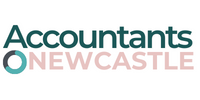The hospitality industry is a dynamic and fast-paced sector that requires meticulous financial management to thrive. In this article, we will explore the crucial role of accounting in the hospitality industry, including key principles and how they contribute to success. From revenue recognition to cost control, we will explore how proper accounting practices can lead to accurate financial reporting, efficient cost management, and improved decision-making. Join us as we uncover common challenges and FAQs in hospitality industry accounting to help businesses navigate this competitive landscape.
What Is the Hospitality Industry?
The hospitality industry encompasses many businesses offering customer services, including hotels, restaurants, event venues, etc.
These establishments ensure guests have a comfortable and enjoyable experience, whether travelling for business or leisure. The hospitality sector has various sub-industries: accommodation, food and beverage, travel and tourism, and entertainment. Each of these sectors contributes to the overall hospitality experience, with a paramount focus on customer service. Providing exceptional service and creating memorable experiences are key factors that set successful hospitality businesses apart.
What Does Accounting Mean in the Hospitality Industry?
Accounting in the hospitality industry involves systematically recording, analysing, and reporting financial transactions within businesses such as hotels, restaurants, and event venues.
One of the key challenges in hospitality accounting is dealing with fluctuating demand and seasonality, which can significantly impact revenue streams and cost structures.
Moreover, accurate financial management is crucial in ensuring efficient cost control, inventory management, and pricing strategies to maintain profitability in this competitive sector.
Compliance with industry regulations, including tax laws and labour requirements, is paramount to avoid penalties and maintain the establishment’s reputation.
What Are the Key Accounting Principles for the Hospitality Industry?
The key accounting principles for the hospitality industry includes:
1. Revenue Recognition
Revenue recognition in the hospitality industry involves accurately recording and categorising income from guest services, such as room bookings, food and beverage sales, and event reservations.
The hospitality sector faces unique challenges in revenue recognition due to fluctuating variables that impact financial reporting. Variable pricing structures for rooms and services can make determining the exact value of revenue earned is difficult. Occupancy rates are crucial, as they directly influence income generated from accommodation services. Diverse revenue streams from different sources like room rentals, dining experiences, and supplementary services complicate the process further.
2. Matching Principle
The matching principle in hospitality accounting mandates aligning expenses with related revenues in the same period to accurately reflect the business’s financial performance.
This principle ensures that the costs incurred to generate revenue are recognised in the same period as the revenue they helped generate. Following this principle, hospitality establishments can provide stakeholders with a clear and transparent view of their financial activities.
Cost allocation involves distributing expenses to the relevant revenue-generating activities, allowing for a more precise measurement of profitability. Amortisation involves spreading the cost of long-term assets over their useful life, matching the expense with the benefit obtained. Accrual accounting records revenues and expenses as they occur rather than when cash exchanges hands.
3. Cost of Goods Sold
The cost of goods sold represents the direct costs associated with producing goods or services in the hospitality industry, including food, beverages, and supplies used in operations.
The cost of goods sold is a critical metric for hospitality businesses as it directly impacts inventory control and profitability. By tracking and analysing these costs effectively, businesses can gain insights into their operational efficiency and financial health. Utilising proper inventory valuation methods such as First-In-First-Out (FIFO) or Weighted Average Cost can help accurately reflect the value of goods in stock.
Implementing robust cost-tracking mechanisms enables businesses to monitor expenses closely, identify areas of cost inefficiencies, and make informed decisions to optimise cost management. This can lead to better control over inventory levels, reduced waste, and improved overall profitability.
Strategies such as negotiating better prices with suppliers, minimising excess inventory, and enhancing menu engineering based on cost analysis can further enhance cost control measures. By implementing these strategies effectively, hospitality businesses can streamline operations, improve customer satisfaction, and achieve continuous growth.
4. Inventory Management
Inventory management in the hospitality industry involves monitoring and controlling the flow of goods and supplies to ensure optimal stock levels, minimise waste, and meet demand effectively.
One of the challenges faced in the hospitality sector is the management of perishable goods, which can easily spoil if not handled correctly or if storage conditions are not maintained. This requires a keen eye on expiry dates, proper stock rotation, and efficient forecasting to avoid unnecessary losses.
Seasonal fluctuations add another layer of complexity to inventory management, as demand for certain items can vary significantly throughout the year. Hospitality businesses must adapt to these changes by adjusting their procurement strategies, pricing models, and promotions accordingly.
5. Cost Control
Cost control measures in the hospitality industry aim to manage expenses, enhance profitability, and maintain financial stability amidst operational challenges and market fluctuations.
One crucial aspect of cost control strategies is effectively managing labour costs by optimising staffing levels, scheduling efficiently, and implementing training programs to improve productivity. This helps businesses align their workforce with actual demand, reducing unnecessary expenses.
Overhead expenses are another key area where cost control plays a vital role. By monitoring and analysing utilities, rent, maintenance, and other fixed costs, hospitality businesses can identify areas for streamlining and cost-saving opportunities.
In addition, leveraging pricing strategies for sustainable revenue growth is essential. Implementing dynamic pricing, menu engineering, and value-added promotions can help establishments maximise revenue while staying competitive.
6. Cash Management
Cash management practices in hospitality involve monitoring cash flows, optimising cash reserves, and ensuring liquidity to meet operational needs and financial obligations. Effective cash management is crucial for sustaining business operations in the hospitality sector.
Organisations can efficiently anticipate financial needs and allocate resources by implementing robust cash flow forecasting techniques. This proactive approach enables hotels, restaurants, and other hospitality establishments to navigate seasonal fluctuations and economic uncertainties.
Efficient working capital management plays a key role in ensuring smooth day-to-day operations. By optimising inventory levels, managing receivables, and controlling payables, businesses can maintain liquidity and minimise cash flow gaps, enhancing their financial stability.
How Can Proper Accounting Lead to Success in the Hospitality Industry?
Proper accounting practices can pave the way for success in the hospitality industry by providing accurate financial reporting, efficient cost management, improved decision-making, better budgeting, forecasting, and ensuring compliance with industry regulations.
Accurate Financial Reporting
Accurate financial reporting in the hospitality industry is essential for transparency, decision-making, and compliance with regulatory standards.
In this sector, financial statements such as income statements, balance sheets, and cash flow statements are crucial tools for tracking revenues, expenses, assets, and liabilities. These statements provide a snapshot of the financial health of a hospitality business, informing stakeholders about its profitability and financial stability. Through meticulous audit procedures, external parties verify the accuracy and reliability of these financial reports, ensuring that they reflect the true financial position of the business. Such reports play a pivotal role in assessing the business’s performance, identifying areas for improvement, and making informed strategic decisions.
Efficient Cost Management
Efficient cost management strategies help hospitality businesses control expenses, optimise resource allocation, and enhance profitability.
In the competitive landscape of the hospitality industry, where margins can be slim and external factors such as economic fluctuations, and seasonal demands play a significant role, having a robust cost management system is crucial. Businesses can achieve significant savings without compromising quality by implementing cost-reduction techniques such as renegotiating supplier contracts, streamlining operational processes, and minimising waste.
Moreover, variance analysis is vital in identifying deviations from planned budgets. It allows management to take corrective actions swiftly. Organisations can pinpoint inefficiencies by conducting regular reviews, analysing the discrepancies, and making informed decisions to improve financial performance.
Setting and adhering to budget controls are essential for ensuring financial stability. Through effective budgeting practices, businesses can track expenses, allocate resources efficiently, and make strategic investments that align with their goals. A well-executed cost management strategy is instrumental in navigating the financial challenges unique to the hospitality sector and securing long-term success.
Improved Decision Making
Improved decision-making in hospitality relies on accurate financial data, performance analysis, and forecasting to support strategic choices that drive business growth.
Therefore, accounting information plays a crucial role in providing key insights that enable managers to evaluate the business’s financial health, assess the effectiveness of current strategies, and make informed decisions for future success.
When equipped with comprehensive financial reports and analysis, hospitality professionals can better understand revenue trends, cost structures, and profit margins, allowing them to identify areas for improvement and implement targeted strategies to enhance operational efficiency.
Better Budgeting and Forecasting
Effective budgeting and forecasting in the hospitality industry enable businesses to plan for expenses, anticipate revenue streams, and adapt to market trends for sustainable financial performance.
Regarding revenue management for hospitality establishments, budget variance analysis is crucial in identifying deviations between planned and actual financial outcomes. By analysing these variances, businesses can pinpoint areas of improvement and make data-driven decisions to enhance profitability.
Revenue projections are another key aspect of budgeting and forecasting, providing insights into expected income streams based on historical data, market trends, and future predictions. These projections form the foundation for setting achievable financial targets and aligning business strategies accordingly.
In today’s dynamic business environment, agile financial planning strategies are essential for staying responsive to changing circumstances. By adopting flexible budgeting approaches and continuously refining revenue forecasts, hospitality establishments can ensure resilience and competitiveness in the market.
Compliance with Regulations
Compliance with regulations is crucial for hospitality businesses to avoid penalties, maintain ethical standards, and build stakeholder trust.
In the fast-paced and customer-centric world of hospitality, abiding by regulatory requirements is not merely a legal obligation but a strategic imperative. Organisations must adhere to many regulations, from health and safety protocols to labour laws and environmental considerations. These compliance areas include food safety standards, data protection laws, employee rights, and accessibility requirements.
Hospitality establishments are often subject to extensive reporting obligations. They must furnish accurate financial statements, adhere to tax laws, and comply with licensing and permitting regulations. Failure to meet these reporting requirements can result in severe consequences, including hefty fines, legal sanctions, and reputational damage.
What Are the Common Accounting Challenges in the Hospitality Industry?
The hospitality industry faces common accounting challenges such as:
Seasonal Fluctuations
Seasonal fluctuations in the hospitality industry pose challenges in revenue forecasting, staffing adjustments, and inventory management during peak and off-peak periods.
One of the primary impacts of these seasonal demand variations is the necessity for revenue diversification among hotels, restaurants, and other hospitality businesses. To offset the inevitable ebbs and flows in customer traffic, industry players must explore multiple income streams, such as hosting events, offering special promotions tailored to different seasons, or catering to specific market segments. By diversifying revenue sources, establishments can mitigate the risk of relying too heavily on a single revenue stream.
Inventory Management
Effective inventory management is crucial for hospitality businesses to minimise waste, control costs, and ensure consistent supply availability.
Within the hospitality industry, managing perishable goods presents a unique challenge due to their limited shelf life. Daily fluctuations in demand, expiration dates, and quality concerns require precise monitoring to prevent overstocking or shortages. Procurement strategies play a vital role in maintaining optimal inventory levels, balancing between bulk purchasing for cost savings and avoiding excess inventory that may lead to waste. Implementing technology solutions like inventory tracking software can provide real-time data insights, streamline order processes, and enhance accuracy in forecasting future needs.
Labour Costs
Labour costs present a significant accounting challenge in hospitality, necessitating efficient workforce management, payroll control, and labour cost analysis.
Managing labour expenses in the hospitality sector involves intricate processes beyond simple budgeting. Ensuring staffing efficiency is crucial to handling labour costs effectively. Balancing the need to provide quality service with controlling wage expenses requires a delicate equilibrium. Compliance with wage regulations adds another layer of complexity to labour cost management. Tracking labour productivity metrics is essential for identifying areas of improvement and achieving cost optimisation in the competitive hospitality industry.
Cash Flow Management
Effective cash flow management is critical for sustaining daily operations, managing working capital, and financing growth initiatives in the hospitality industry.
Cash flow forecasting provides insights into future revenue and expenditure patterns, enabling businesses to anticipate potential cash shortages and plan accordingly. By effectively managing cash flow, businesses can ensure they have enough liquidity to cover their day-to-day expenses and investments.
Working capital management is crucial in balancing short-term assets and liabilities, ensuring a company can meet its short-term financial obligations without compromising long-term growth prospects.
Tax Compliance
Tax compliance requirements in the hospitality industry involve the following:
- Adhering to local tax laws.
- Filing accurate returns.
- Managing tax liabilities to avoid legal issues and financial penalties.
Staying abreast of tax planning strategies is crucial for sustaining financial health and regulatory compliance in an industry known for its complexity and nuances. Hospitality businesses often navigate a web of regulations that vary across regions, requiring vigilance to ensure accurate reporting.
Regulatory updates are pivotal in shaping tax compliance practices, necessitating proactive measures to adapt to changing laws and ordinances. As trusted advisors, accountants guide businesses in optimising tax efficiency while ensuring compliance with ever-evolving tax codes.
FAQs on Hospitality Industry Accounting
Q: How does accounting differ for various segments within the hospitality industry, such as hotels, restaurants, and event venues?
Accounting practices vary across different hospitality industry segments, with hotels focusing on room revenue, restaurants on food costs, and event venues on service contracts and event bookings.
While hotels typically have complex revenue streams that include room rates, package deals, and ancillary services, restaurants primarily manage food costs, inventory, and menu pricing strategies. On the other hand, event venues face the challenge of handling multiple revenue sources from hosting various events such as weddings, conferences, and seminars, each with unique financial implications.
Q: How can technology and software solutions enhance accounting processes in the hospitality sector?
Technology and software solutions offer automation, data integration, and analytics capabilities that streamline accounting processes, improve accuracy, and enable real-time financial insights in the hospitality sector.
One key aspect of modernising accounting practices in hospitality is the adoption of cloud accounting systems. These systems allow for remote access to financial data, collaboration among teams in different locations, and enhanced security measures to protect sensitive information. By moving accounting operations to the cloud, hotels and restaurants can enjoy increased flexibility and scalability while reducing costs associated with traditional on-site servers.
Q: Can you provide examples of how improved decision-making through accounting has positively impacted hospitality businesses?
Improved decision-making driven by accurate accounting data has led to success stories in the hospitality industry, such as optimising menu pricing, reducing operational costs, and enhancing guest experiences.
Using accounting insights, hospitality businesses have streamlined their financial operations, enabling them to allocate resources more efficiently and effectively. By identifying profitable and non-profitable menu items, establishments have restructured their offerings to focus on high-margin products, ultimately increasing overall revenue. Detailed cost analysis has allowed managers to pinpoint areas where expenses can be minimised without compromising service quality, resulting in significant savings.





